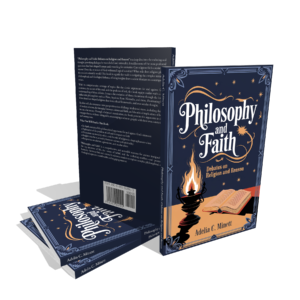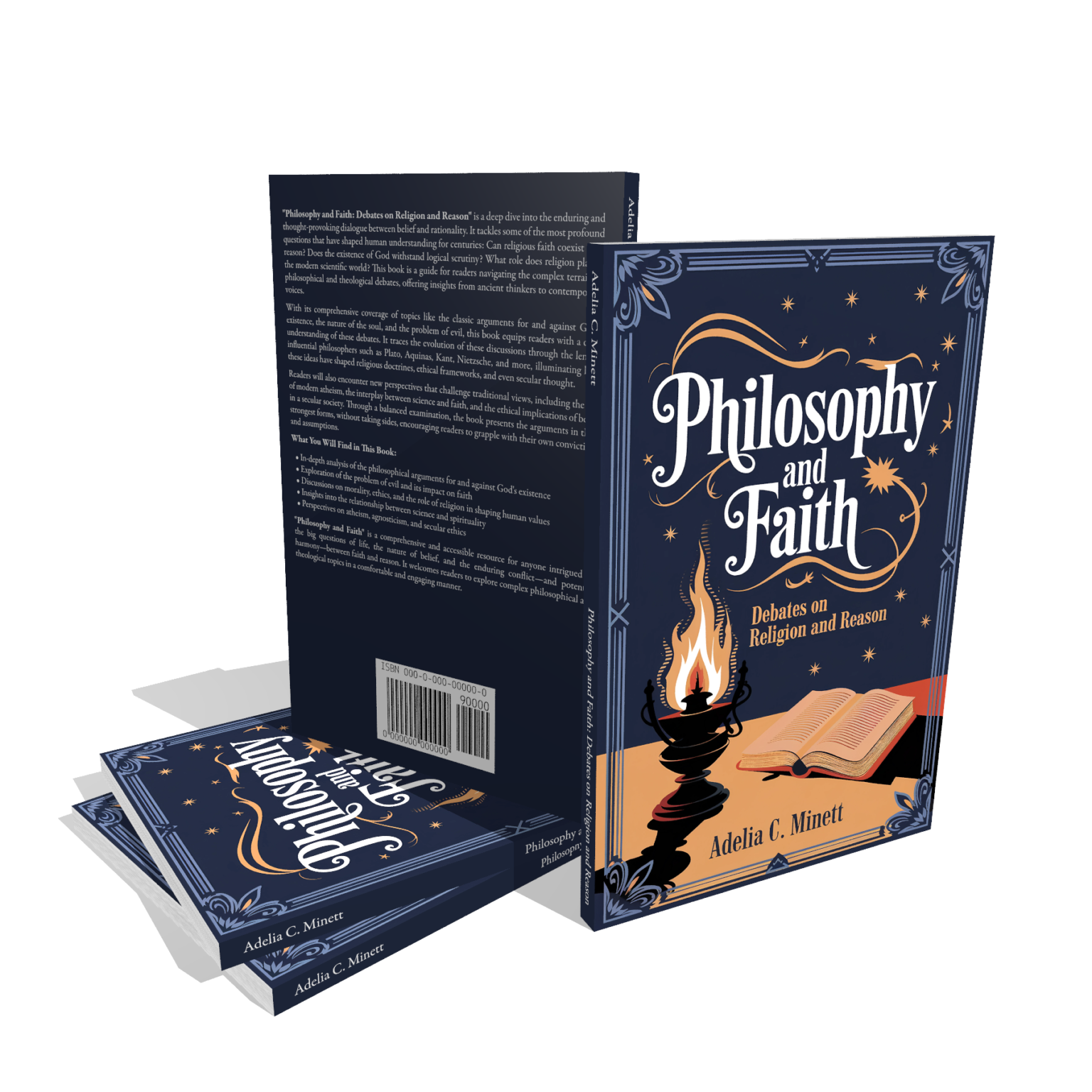Philosophy and Faith Debates on Religion and Reason – Complete Guide to Balancing Belief and Logic

Philosophy and faith have long stood at opposite ends of intellectual discourse, yet this groundbreaking exploration reveals how belief and reason can coexist harmoniously. If you’ve ever struggled with reconciling your spiritual beliefs with logical thinking, or wondered whether faith and rationality must be mutually exclusive, this comprehensive guide offers profound insights into one of humanity’s most enduring debates. Unlike academic treatises that favor one perspective over another, “Philosophy and Faith: Debates on Religion and Reason” presents a balanced examination of how religious thought and rational inquiry can complement rather than contradict each other.
This thought-provoking exploration delves deep into the philosophical debates that have shaped human understanding for centuries, offering readers practical frameworks for navigating the complex relationship between belief systems and logical reasoning. Through careful analysis of classic arguments, ethical dilemmas, and contemporary perspectives, this book bridges the gap between faith-based worldviews and secular reasoning, making it an essential resource for anyone seeking intellectual honesty in their spiritual journey.
What You’ll Discover
- Harmonious Coexistence Strategies: Learn practical approaches to balance faith and rationality without compromising your intellectual integrity or spiritual beliefs
- Classic Philosophical Arguments: Master the foundational debates surrounding God’s existence, from cosmological arguments to modern rational skepticism
- Ethical Framework Integration: Discover how religious and secular moral systems can inform each other to create robust ethical decision-making processes
- Critical Thinking Enhancement: Develop sophisticated reasoning skills to evaluate belief systems objectively while respecting diverse philosophical perspectives
- Modern Application Techniques: Transform abstract philosophical concepts into practical tools for navigating real-world moral and spiritual challenges
- Balanced Perspective Development: Gain comprehensive understanding of atheism, agnosticism, and secular ethics alongside traditional religious thought
Why This Book Matters
In our increasingly polarized world, the ability to engage thoughtfully with both religious and secular perspectives has become essential for meaningful dialogue and personal growth. This book addresses the critical need for intellectual frameworks that honor both faith traditions and rational inquiry, showing readers how these approaches can strengthen rather than weaken each other. Whether you’re a believer questioning your faith, a skeptic exploring spirituality, or someone seeking middle ground, these insights provide practical tools for navigating complex philosophical terrain with confidence and wisdom.
The author’s balanced approach avoids the common pitfall of dismissing either faith or reason, instead demonstrating how both contribute to a fuller understanding of human experience. Through engaging with these perspectives, readers develop enhanced critical thinking skills, deeper empathy for diverse viewpoints, and more nuanced approaches to life’s big questions that can be immediately applied to personal relationships, career decisions, and ethical challenges.
Key Features
This comprehensive ebook spans multiple chapters covering classic philosophical arguments, contemporary ethical dilemmas, and practical applications for modern life. Available as an instant digital download, you’ll receive immediate access to thought-provoking analysis, discussion questions, and reflection exercises designed to deepen your understanding. The format allows for easy reading on any device, with printable sections for note-taking and group study. Also available as audiobook on Google Play Books and Spotify for convenient listening during commutes, workouts, or quiet reflection time.
Frequently Asked Questions
Can philosophy and faith really coexist without contradicting each other?
Absolutely. This book demonstrates how philosophical reasoning can actually strengthen faith-based perspectives while religious insights can inform rational discourse. The key lies in understanding that both approaches seek truth through different but complementary methods, creating opportunities for deeper understanding rather than inevitable conflict.
Is this book suitable for both believers and skeptics of religious thought?
Yes, the balanced approach makes it valuable for readers across the belief spectrum. Believers will gain tools for articulating their faith intellectually, while skeptics will discover nuanced perspectives on religious thought that go beyond simplistic dismissals. The emphasis on critical thinking benefits everyone.
How does this book differ from academic philosophy texts on religion and reason?
Unlike dense academic works, this book presents complex ideas in accessible language with practical applications. It focuses on real-world implications rather than abstract theory, making sophisticated philosophical concepts relevant to everyday decision-making and personal growth.
Get Your Copy Today
Transform your understanding of philosophy and faith with this comprehensive guide to balancing belief and reason. Available for instant download at just $6.99, this ebook provides exceptional value compared to expensive philosophy courses or seminary classes. Also available as audiobook on Google Play Books and Spotify for flexible learning. Purchase your copy through all major ebook retailers including Apple Books, Barnes & Noble, and Kobo to begin developing a more nuanced and intellectually honest approach to life’s biggest questions today.
Watch the Video Review

